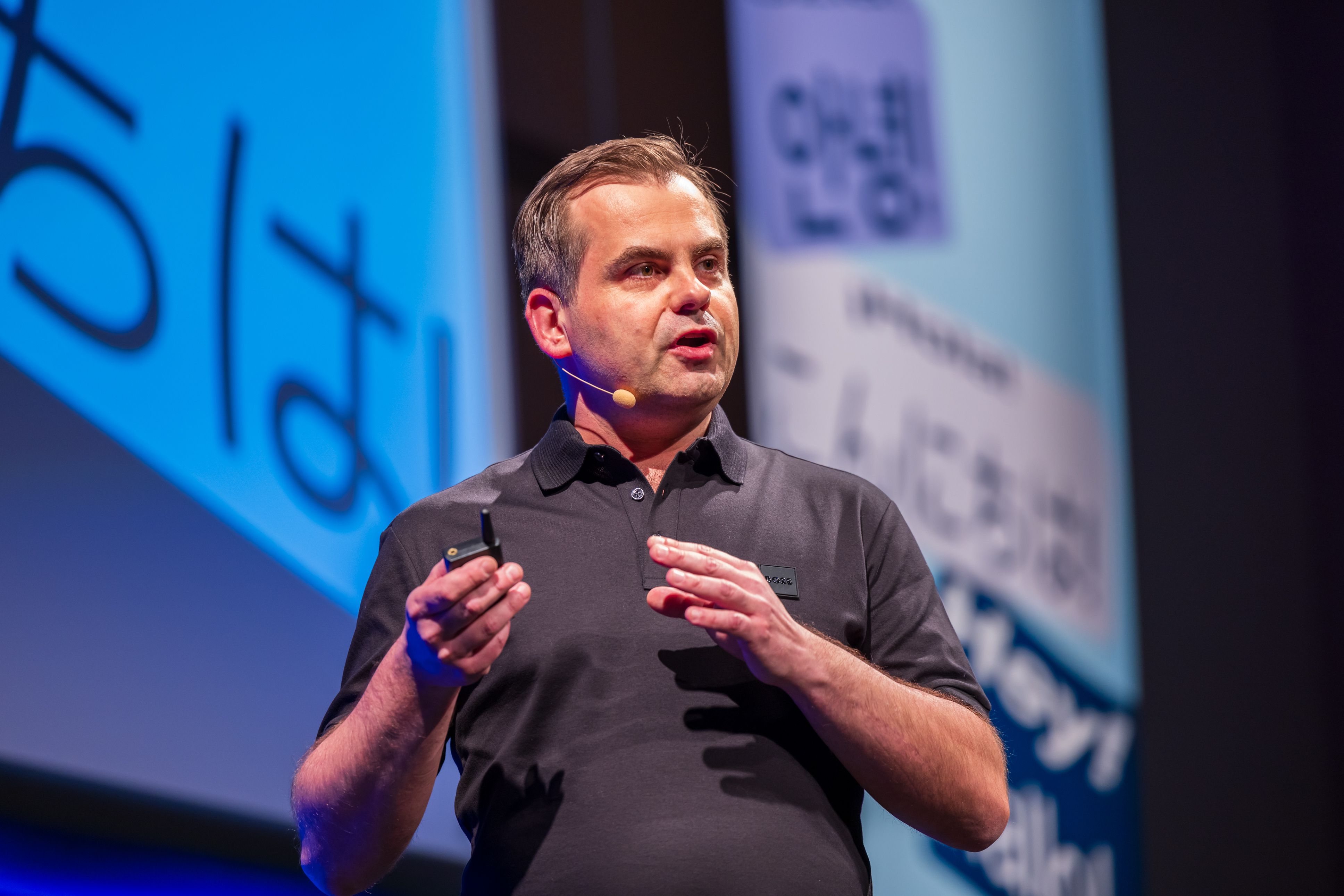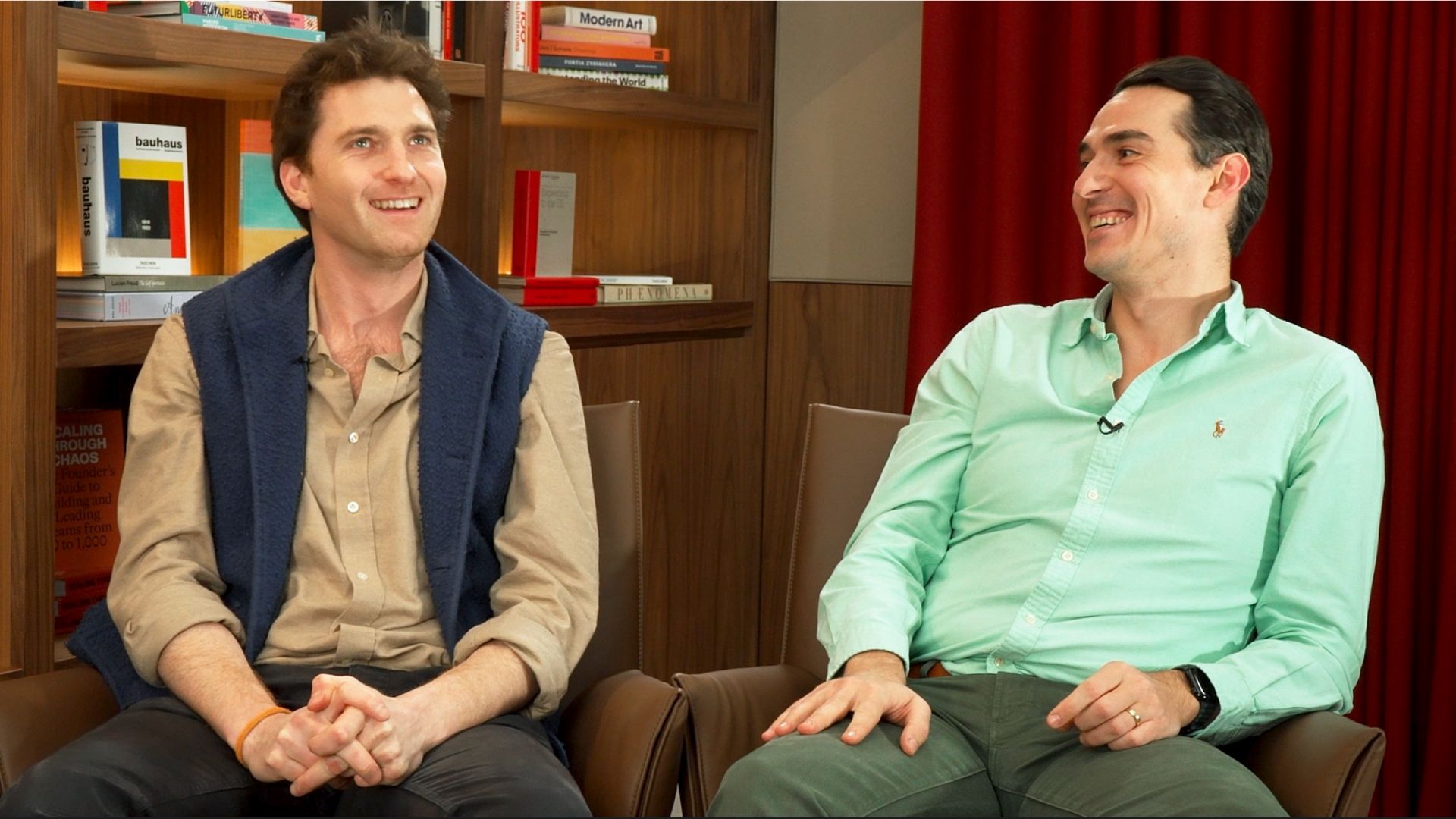Fluency is currency: DeepL and the future of business communication

Index Partners Danny and Kathi share why Index is leading a $300m round in a transformative language AI company.
We are multilingual, and yet we often struggle to speak our mother tongues. Why? We were both raised outside the Anglosphere – one of us in French-speaking Switzerland, the other in Germany – and yet many of our professional interactions are in English. One of us would never dream of using French to interrogate the nuances of go-to-market strategy, persuade a top-tier executive to join one of our portfolio companies, or coach a founder through a difficult quarter. The other does fall back on German, but often blanks on words, and finds themselves speaking ‘Denglish’ – German with lots of English sprinkled in, which doesn’t always land well. These are limitations we’ve come to accept.
We’re lucky though, because the language we feel most professionally confident in – English – is the currency of global business. For entrepreneurs who don’t (and may never be able to) speak English with the ease of a native speaker, that’s a raw deal. Index has always believed that amazing founders can come from anywhere, and be anyone. So what if the contingencies of the languages you did or didn’t learn to speak were no longer a blocker for building a business? Imagine a marketing department in Berlin generating copy that resonates in Japan, or a lawyer in Paris preparing an employment contract for a staff member in São Paulo. What if multilingual fluency became table stakes, where companies could communicate with customers and partners around the world as naturally as in their own market?
We asked ourselves these questions when investing in DeepL, the transformative AI language company out of Germany that’s on a mission to break down language barriers. We’ve been actively investing in AI for nearly a decade, and we’ve looked at hundreds of AI companies. Often they’re led by incredibly talented researchers and engineers – but only some are steered by real entrepreneurs, who combine breakthrough technology with an obsession with customer problems, thoughtful product design and a commercial sensibility. Just as we saw at the heights of the market enthusiasm for crypto and climate tech, it’s easy for folks to get caught up in the hype, and to lose the discipline of tackling real problems that people will pay to solve.
What Jarek and the team have built with DeepL stands out, while also being exemplary of the kind of IP-rich, commercially thoughtful companies we back at Index. Since launching in 2017, DeepL has attracted over 100,000 business customers, many of them household names. Leading linguists attest that DeepL’s products leave the competition in the dust when it comes to accuracy, tone, register and specialized vocabulary. By deeply understanding their customers – be they media executives, lawyers or journalists – DeepL saw that they could differentiate by providing enterprise-grade security, and making translation almost invisible as part of a seamless workflow. With DeepL, you can imagine a time where talking about ‘translation’ is like talking about ‘digital’ – it’s taken-as-read, something that’s simply baked into the experience.
DeepL is bringing a future into focus where there’s no such thing as a lack of functional fluency in another language. The impact on all of us could be profound. Just as Figma allows companies to create a single source of truth for design, DeepL is helping to create communication systems that allow businesses to transmit their brand voice globally, both internally and externally. This is a world where the language of contracts, financial reports and technical documentation is largely a matter of user preference. Where it's just as easy to consume content, attend meetings, and collaborate with colleagues in any language. Just as it would have been naive to view email as a linear progression from the fax machine, the shift to ubiquitous, high-quality translation has the potential to fundamentally reshape how language works in the global economy.
In this world, will English maintain its dominance? Will the ability to operate fluently in any language undermine its value as a lingua franca? It's hard to predict exactly how the dynamics will play out. What we can say is that language will no longer be a barrier in the same way it is today. We are humbled and privileged to be partners to DeepL as they open up access to the currency that is fluency.
Published — May 22, 2024


